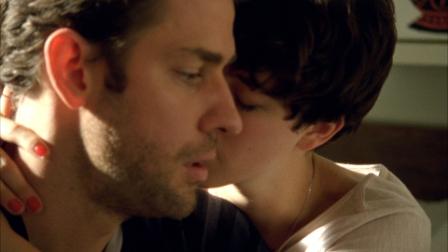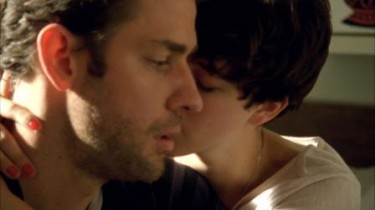 Back to selection
Back to selection
“NOBODY WALKS” | director, Ry-Russo Young


[PREMIERE SCREENING: Sunday, January 22 12:15 pm –Eccles Theatre, Park City]
When I was a teenager I would wear sexy clothes to school that didn’t fit me. My mother would see me before I left the house and was horrified that her awkward, fourteen year old daughter was planning to walk the New York City streets in a tight pink baby tee shirt and red denim miniskirt. She said I looked like a hooker clown and she was probably right. But at the time, I was just beginning to understand that my body could communicate something sexual and powerful to others. Almost every woman I know went through a time in her life when she tested the boundaries of her own sexuality, struggling with what it meant to have both freedom and self-respect at the same time.
When we travel to another city, we are taken out of our comfort zone. We become highly aware of our new environment and the ways in which we’re different from our surroundings and its inhabitants. We re-discover ourselves in a similar way to how we discovered our bodies physically and sexually. We test the limits of this new place, what we can get away with and its code of ethics. The new place becomes like our changing body: full of freedom, possibility and potential trespass.
The first time I ever went to Los Angeles I was a teenager. My mom and I had been invited to be on a talk show called Leeza. It was a free trip to LA and since my mom and I had never been we thought it would be a fun vacation. The show was about lesbian families, the premise being are they “normal.” Having grown up with two moms, I was used to explaining my family and felt pretty comfortable. But when we went on the show I felt like a freak on display, like the rest of the world was operating under assumptions I didn’t understand. There was a man on the show who said being gay was a sickness. I was appalled to the point of speechlessness, I couldn’t believe this guy was allowed to make such homophobic remarks on national television. Looking back, I realize how sheltered I was. Perhaps I was also shocked that my over-protective Jewish mother (one of two) would subject me to a traumatic experience. It’s ironic that coming from New York, Los Angeles was my wake up call to conservative American values.
I’ve always had a love/hate relationship with straight culture, with the idea of marrying a man and having kids. I didn’t think I believed in it, how could I buy into all that? It was straight culture that didn’t allow my two lesbian mothers to marry and therefore not to be protected by law. It was the justice system that granted my sperm donor the right to sue my moms for years, drain their resources and any sense of family security we had. And yet, I am now a part of straight culture living with my boyfriend. I belong to the world of engagement rings, high heels, gender roles and infidelity. Nobody Walks looks at a family from an outsider’s perspective yet ends up on the other side. The family side.
The film is drawn from some of these themes: the potency of sexuality, the constancy of family, the emotions of place. But from the outset, I wanted the film to be a framework in which to explore these topics. In fleshing out these early concepts, I owe a great deal to the team of collaborators who gave this film its color and life. Collaboration is what makes film the medium I love best and the most fun to execute. To grow an idea through interaction with other artists who push you, who enlighten you, who challenge you with their astonishing talents and wicked intelligence. From my co-writer Lena Dunham, the DP Christopher Blauvelt and the incredible actors John Krasinski, Rosemary Dewitt, Olivia Thirlby – these are just a few of the people who helped create a film which is hopefully personal to each of us, and yet recognizable to everyone.
